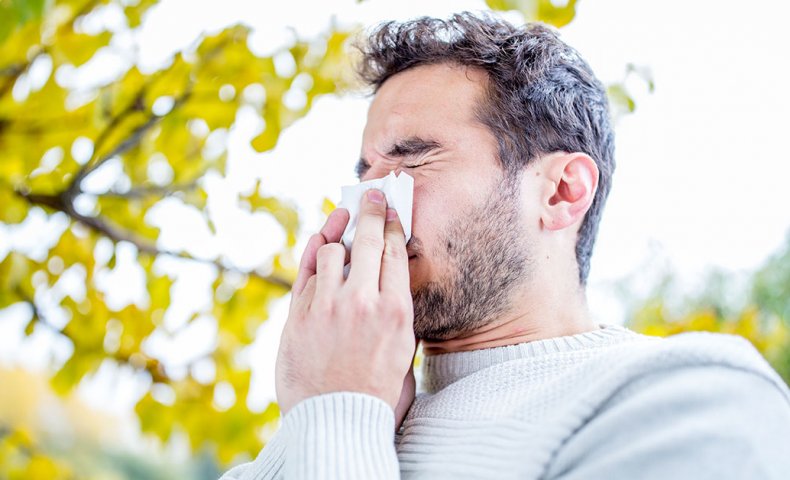
Fall brings beautiful foliage and cooler temps. But for seasonal allergy sufferers, it also triggers sneezing, stuffy noses and watery eyes.
What are some key things to keep in mind about fall allergies? And how do you know if you’re dealing with allergies vs. a cold? Dr. Mia Finkelston – a doctor you can visit through LiveHealth Online – recently answered our allergy questions.
What are common triggers of fall allergies and how can I avoid them?
Classic culprits are: Ragweed (#1), molds, and tree leaves. Pollen grains from ragweed are lightweight and can travel easily on breezy fall days. Many people who have spring allergies are allergic to ragweed, which is abundant during autumn.
In addition, as we start to spend more time indoors with cooler fall weather, people who have indoor allergies (to dust mites, for example) can notice them more.
It’s impossible to completely avoid your triggers, but you can take some simple steps to reduce your exposure. Whenever possible, keep your home and car windows closed. Consider wearing a mask and/or asking for help doing yardwork or clearing dead leaves from your gutters.
And don’t forget to wash your hands, hair and skin when you head indoors, if you are highly allergic during this time of year. It can help minimize your symptoms.
How can I tell if my symptoms are due to allergies or a cold?
With allergies, a stuffy nose and watery eyes are common and are not typically accompanied by fever. If you are running a higher temperature than usual, then you likely have the start of an illness, possibly an upper respiratory infection like a cold or sinusitis.
Significant aches and soreness in your joints or muscles are also common early on with an upper respiratory infection (URI). These symptoms are usually not seen with allergy flares.
Allergies tend to make you feel “itchy” — the eyes, roof of your mouth and/or nose are particularly vulnerable. While some of these uncomfortable symptoms can happen with a URI, it’s less common and usually temporary. With allergies, this itchiness can be persistent and may get worse over time or with exposure to certain environmental triggers.
Eye symptoms don’t happen to everyone with allergies. But if your eyes have a watery discharge, are very red in the white part of the eye and feel itchy, this is likely related to allergies. Experiencing symptoms in both eyes (rather than just one) is typically a sign that it’s allergy-related, as well. If a cold is what’s affecting your eye(s), they tend to be less watery, red or itchy than when allergies are the cause.
Sometimes cold vs. allergy symptoms can be hard to distinguish (especially at the start of allergy season or the beginning of a respiratory infection). But with a thorough medical history and a quick consult, doctors can help you understand the most likely culprit behind your symptoms.
Tap into LiveHealth Online anytime 24/7 for convenient online visits with healthcare experts who know the latest allergy treatment trends.
Recommended Posts




